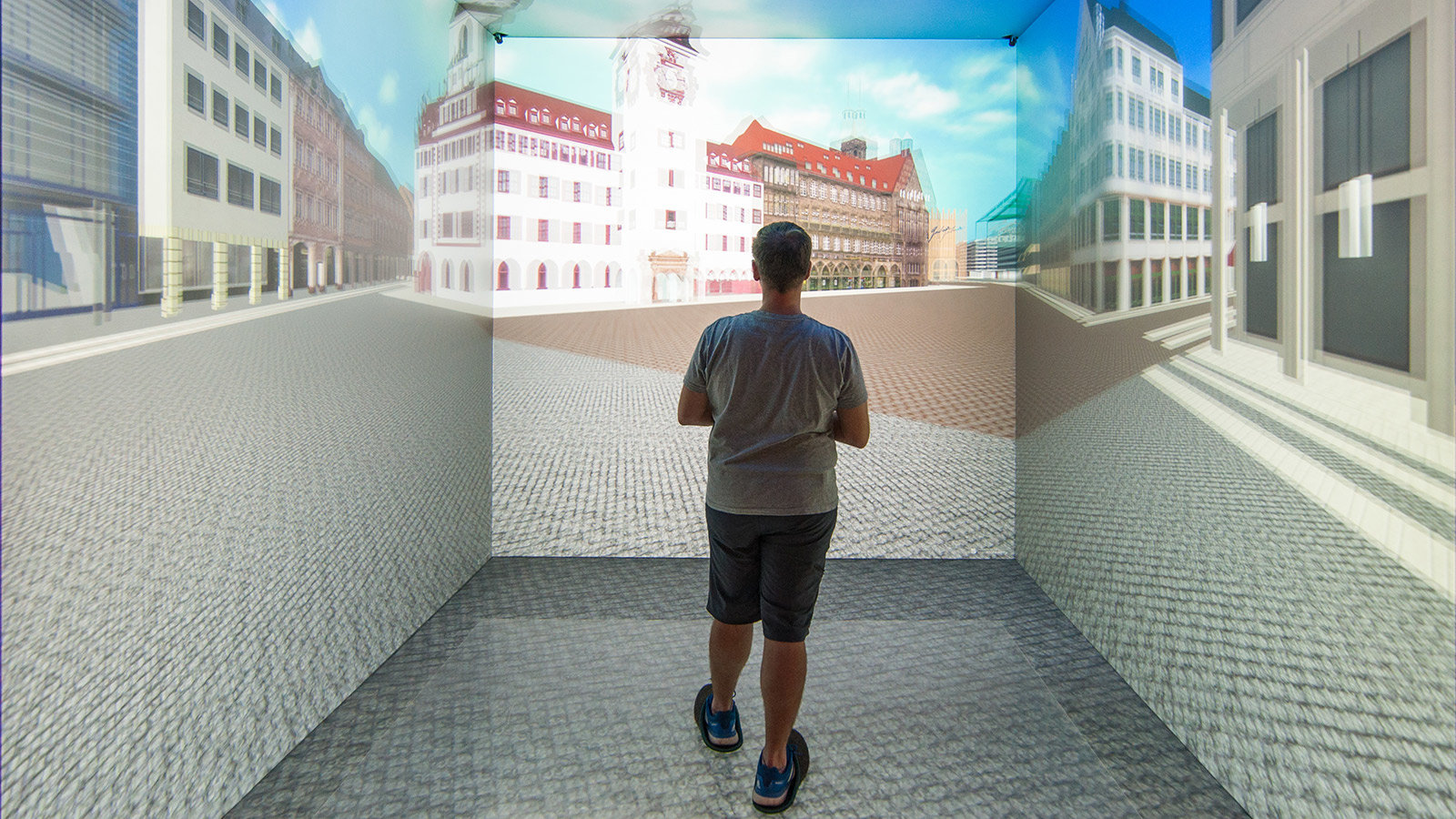Blood-Alcohol Limit for the Virtual World?
A Chemnitz University of Technology study addresses how VR users perceive the virtual world while under the influence of alcohol – results were published in the “Scientific Reports” research journal
-

In Chemnitz University’s “Virtual Reality Center Production Engineering”, study participants took part in a virtual geocaching walking tour through the Chemnitz city center. Photo: René Apitzsch
Mario Lorenz, researcher in the Professorship for Machine Tools and Forming Technology at Chemnitz University of Technology, conducts research using virtual reality (VR) technologies every day. “For years I have observed how users perceive presence when they go into the virtual world, or the feeling of being there and interacting,” says the scientist. But what happens to this process when the VR user has ingested mind-altering substances like medications or alcohol? Lorenz could no longer ignore this question, as it continues to become more and more relevant in today’s society. He explains: “As we create better and more realistic virtual realities, and as we involve more senses and the scenes feel more real for the user, this question becomes even more important: could the use of VR in combination with mind-altering substances have negative effects on the user’s health?” According to Lorenz, this issue is especially relevant for the use of VR in home-entertainment settings or in medical VR therapies, such as in the treatment of anxiety.
Lorenz conducted a study with his colleague Jennifer Brade to address this question. 54 participants, with a measured blood alcohol concentration (BAC) under 0.4‰, went on a virtual geocaching mission through the Chemnitz city center in the Professorship’s 5-sided CAVE (Cave automatic Virtual Environment). Afterwards, participants were asked to describe their feelings of presence and their user experience in the VR setting using questionnaires. “In analyzing the results of the questionnaires, we were surprised to find no differences between the 23 participants who were under the influence of alcohol and the 31 people in the control group,” reports Lorenz.
This study from Chemnitz came about as the result of international cooperation among researchers at the University of Leipzig Medical Center, the University of Otago in New Zealand, the Austrian Institute of Technology and the University of Gothenburg in Sweden. The results were recently published in the “Scientific Reports” research journal from the publishers of “Nature”. The article, “Presence and User Experience in a Virtual Environment under the Influence of Ethanol: An Explorative Study”, is available online here: https://www.nature.com/articles/s41598-018-24453-5
Lorenz declared his support for conducting further studies in cooperation with medical partners, with higher amounts of alcohol consumption or other mind-altering substances, like medications, and with other VR programs. “We are aware that we have entered uncharted scientific territory with our initial small, explorative study. It is all the more important to recruit more research teams who will dedicate themselves to researching in this field. It would not only be in the best interest of manufacturers, but also in the interest of users, to continue to investigate the effects of VR on humans’ perception, cognition and minds in order to avoid any potential negative health effects.”
(Translation: Sarah Wilson)
Matthias Fejes
17.07.2018




